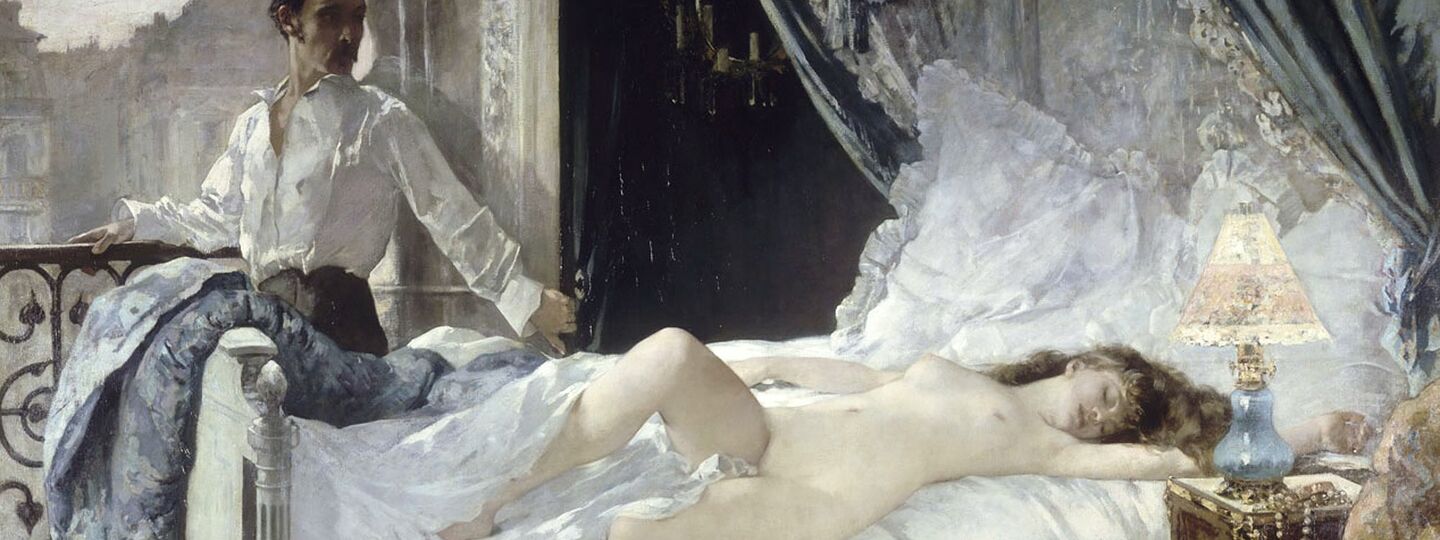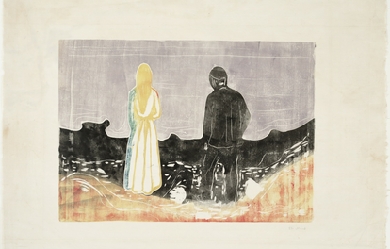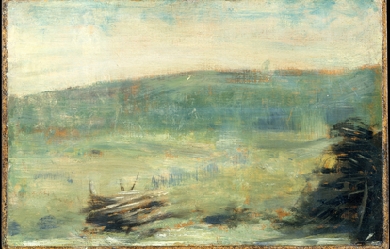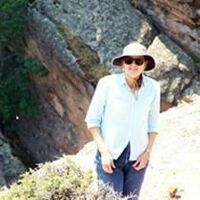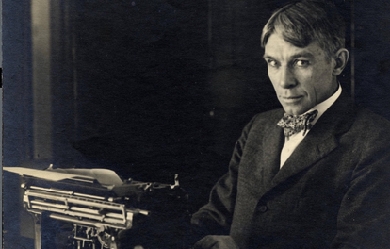

Carl Sandburg was born in Galesburg, Illinois, on January 6, 1878. His parents, August and Clara Johnson, had emigrated to America from the north of Sweden. After encountering several August Johnsons in his job for the railroad, the Sandburg's father renamed the family. The Sandburgs were very poor; Carl left school at the age of thirteen to work odd jobs, from laying bricks to dishwashing, to help support his family. At seventeen, he traveled west to Kansas as a hobo. He then served eight months in Puerto Rico during the Spanish-American war. While serving, Sandburg met a student at Lombard College, the small school located in Sandburg's hometown. The young man convinced Sandburg to enroll in Lombard after his return from the war.


Leopoldo Minaya: poeta, exopoeta*, fabulista y autor de teatro en lengua castellana, originario del nordeste de la isla de Santo Domingo, o Hispaniola (noviembre 15, 1963), en la América Insular. La presente selección pretende abarcar todas las modalidades poéticas cultivadas por el autor: lírica, épico-lírica, dramática, aforística, satírica, amatoria, social, mística e infantil-juvenil. Ofrece igualmente una muestra de su prosa en asuntos de interés teológico o de apreciación escritural. Los trabajos literarios de Minaya no pretenden reflejar criterios personales del autor, imparcial e impasible al través del desarrollo de los textos; antes bien, trasvasan voces verosímiles de entes nominados, eventuales o anónimos... que al manifestarse, afirmar, mediar o contraponerse, permiten que sea al lector a quien corresponda armar el tablero de la Realidad. La luz del mundo es (debería ser) la voz de todos, en adición a las voces predominantes de intereses instituidos, doctrinas, prejuicios, ignorancias, dogmas, fanatismos, ideologías impuestas, y forzadas formas de arte y de pensamiento.... en este universo pródigo y edificante alumbrado por el bien y por la razón del hombre, y oscurecido por el mal y por la sinrazón del hombre. Hay, en la producción estética de Leopoldo Minaya, inclinación a la experiencia mística, la teodicea y la exopoesía*. Sus temas remiten por igual a la filosofía existencial, la teología, la jurisprudencia, la filosofía política, el texto satírico y, sobre todo, a la acción teatral, pues el poema es concebido por este autor como obra dramática minimalista, con sus temas, su escenografía y sus personajes. ________________ *Exopoesía, exopoema, exopoeta, exopoiesis: términos acuñados por Leopoldo Minaya para describir la situación espiritual del aeda cuando habla con voz ecuménica y, por tanto, no canta ni se reconoce como instrumento ni como celebrante de potestades terrenales o humanas. La voz del exopoeta, en las veces en que suele verificarse, habla a la humanidad desde fuera del radio de influencia de la misma, según el orden espiritual de las presencias universales. ≈ Bibliografía: [POESÍA] 1) Oscilación de péndulo (poemas de adolescencia, 1977-1981) 2) Preeminencia del tiempo (1983-1989) 3) Preeminencia del tiempo y Otros poemas (1998) 4) La hora llena (2000-2007) 5) Poemas imaginarios (2000-2007) 6) Los cantos sagrados (2019) [LITERATURA JUVENIL] 7) El tiempo niño (1990) 8) Historia del niño René Rosales y de la flauta encantada (1991) 9) Cuento de los dos quijotes (2001 y 2007) 10) Romance nuevo del conde niño (2007) 11) Romance nuevo del pastorcillo (2007) 12) Historia de la doncella que fue a la guerra o Relato del amor y las batallas o Canción de la niña de Portugal, o Nuevo romance de la doncella guerrera (2007 y 2012) 13) Cantar de flor y sombrerito (2007) 14)Leyenda de Puerto Rico (2007) 15)Comedia al pie de la luna, o Tierna canción lunática, o Charada al pie de la luna (2008) 16)La canción de Angelina (2011) [TEOLOGÍA] 17)Dios y los hombres (2021) [SÁTIRA SOCIAL Y HUMANA] 18)El libro de la hormiga (2018) 19)Las inocentes fábulas de Elfa Bulista (2019) [FILOSOFÍA POLÍTICA] 20)Fabulilla de la isla de Santo Domingo o del halcón gerifalte y la zorra mañosa (2019) [FILOSOFÍA EXISTENCIAL Y POLÍTICA] 21)El digesto, o las lecciones del padre [ENSAYO] 22)Bosquejos de ensayos literarios(2020) 23)Nuevos ensayos de ensayos [TEATRO] El digesto Comedia al pie de la luna ————————————————— IMAGEN DEL PERFIL: El poeta, a los 12 años de edad, tiempo en que fue mayor su entusiasmo por la poesía: “...creía entonces que la poesía podía transformar el mundo”. [PÁGINA ADMINISTRADA POR E. SOROKA, con la anuencia del autor de los escritos. Esta página recoge versiones definitivas, últimas y autorizadas de las labores literarias de Leopoldo Minaya, con prelación frente a cualquier otra publicación, en cualquier formato, aun cuando incluyera un aviso similar a este.]

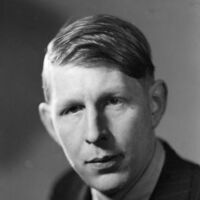
Wystan Hugh Auden (21 February 1907 – 29 September 1973), who published as W. H. Auden, was an Anglo-American poet, born in England, later an American citizen, regarded by many as one of the greatest writers of the 20th century. His work is noted for its stylistic and technical achievements, its engagement with moral and political issues, and its variety of tone, form and content. The central themes of his poetry are love, politics and citizenship, religion and morals, and the relationship between unique human beings and the anonymous, impersonal world of nature. Auden grew up in Birmingham in a professional middle class family and read English literature at Christ Church, Oxford. His early poems, written in the late 1920s and early 1930s, alternated between telegraphic modern styles and fluent traditional ones, were written in an intense and dramatic tone, and established his reputation as a left-wing political poet and prophet. He became uncomfortable in this role in the later 1930s, and abandoned it after he moved to the United States in 1939, where he became an American citizen in 1946. His poems in the 1940s explored religious and ethical themes in a less dramatic manner than his earlier works, but still combined traditional forms and styles with new forms devised by Auden himself. In the 1950s and 1960s many of his poems focused on the ways in which words revealed and concealed emotions, and he took a particular interest in writing opera librettos, a form ideally suited to direct expression of strong feelings.
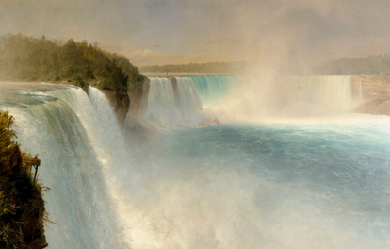

I am an American Patriot, a Believer, and a lover of God and Country. I am a widow, a mother of five children ❤️ and five grandchildren. ❤️ I’m very proud, and honored to have borne such loving, talented and hard working children. Being a Mother was my destiny. Being a writer is also part of my destiny that I truly thank God for. It’s a gift from God It was after my children were grown and left home that I became serious about writing. I have written a book titled (American Poetry and Music) that has been published by Christian Faith Publishing. Which can be purchased on Amazon.com, Barnes and Noble, and Thrift Books.com I get my inspiration from the Creator, and I go under the heading of H.S.I. Which stands for (Holy Spirit Inspiration) Some of these poems on Poeticous.com appear in my book . I am grateful for them allowing me to publish my poems on this site also. I’ve come to love this site very much. All Poems, and Original Music Videos on this site are my own original compositions, and are covered under U.S.Copyright laws.© 2024. For more info -You can find me on (Youtube) and (Facebook). Email no longer public, but if you message me from Facebook or here on Poeticous I’ll give it to you privately. No copyright infringement intended with any Pictures or videos used on these poetry pages. Some videos of artist I enjoy were obtained from Youtube, and some pictures are from Public Domain sites. Mostly they are the property of Poeticous I do not claim rights for any works except my own Original Work. Thank you, Charlotte B. Williams
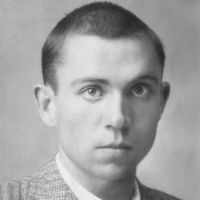
Miguel Hernández (Orihuela, 1910 – Alicante, 1942) Poeta español. Adscrito a la Generación del 27, destacó por la hondura y autenticidad de sus versos, reflejo de su compromiso social y político. Nacido en el seno de una familia humilde y criado en el ambiente campesino de Orihuela, de niño fue pastor de cabras y no tuvo acceso más que a estudios muy elementales, por lo que su formación fue autodidacta.

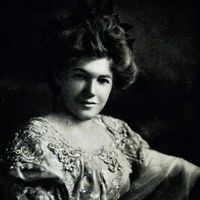
Ella Wheeler Wilcox (November 5, 1850– October 30, 1919) was an American author and poet. Her best-known work was Poems of Passion. Her most enduring work was “Solitude”, which contains the lines, “Laugh, and the world laughs with you; weep, and you weep alone”. Her autobiography, The Worlds and I, was published in 1918, a year before her death. Biography Ella Wheeler was born in 1850 on a farm in Johnstown, Wisconsin, east of Janesville, the youngest of four children. The family soon moved north of Madison. She started writing poetry at a very early age, and was well known as a poet in her own state by the time she graduated from high school. Her most famous poem, “Solitude”, was first published in the February 25, 1883 issue of The New York Sun. The inspiration for the poem came as she was travelling to attend the Governor’s inaugural ball in Madison, Wisconsin. On her way to the celebration, there was a young woman dressed in black sitting across the aisle from her. The woman was crying. Miss Wheeler sat next to her and sought to comfort her for the rest of the journey. When they arrived, the poet was so depressed that she could barely attend the scheduled festivities. As she looked at her own radiant face in the mirror, she suddenly recalled the sorrowful widow. It was at that moment that she wrote the opening lines of “Solitude”: Laugh, and the world laughs with you; Weep, and you weep alone. For the sad old earth must borrow its mirth But has trouble enough of its own She sent the poem to the Sun and received $5 for her effort. It was collected in the book Poems of Passion shortly after in May 1883. In 1884, she married Robert Wilcox of Meriden, Connecticut, where the couple lived before moving to New York City and then to Granite Bay in the Short Beach section of Branford, Connecticut. The two homes they built on Long Island Sound, along with several cottages, became known as Bungalow Court, and they would hold gatherings there of literary and artistic friends. They had one child, a son, who died shortly after birth. Not long after their marriage, they both became interested in theosophy, new thought, and spiritualism. Early in their married life, Robert and Ella Wheeler Wilcox promised each other that whoever went first through death would return and communicate with the other. Robert Wilcox died in 1916, after over thirty years of marriage. She was overcome with grief, which became ever more intense as week after week went without any message from him. It was at this time that she went to California to see the Rosicrucian astrologer, Max Heindel, still seeking help in her sorrow, still unable to understand why she had no word from her Robert. She wrote of this meeting: In talking with Max Heindel, the leader of the Rosicrucian Philosophy in California, he made very clear to me the effect of intense grief. Mr. Heindel assured me that I would come in touch with the spirit of my husband when I learned to control my sorrow. I replied that it seemed strange to me that an omnipotent God could not send a flash of his light into a suffering soul to bring its conviction when most needed. Did you ever stand beside a clear pool of water, asked Mr. Heindel, and see the trees and skies repeated therein? And did you ever cast a stone into that pool and see it clouded and turmoiled, so it gave no reflection? Yet the skies and trees were waiting above to be reflected when the waters grew calm. So God and your husband’s spirit wait to show themselves to you when the turbulence of sorrow is quieted. Several months later, she composed a little mantra or affirmative prayer which she said over and over “I am the living witness: The dead live: And they speak through us and to us: And I am the voice that gives this glorious truth to the suffering world: I am ready, God: I am ready, Christ: I am ready, Robert.”. Wilcox made efforts to teach occult things to the world. Her works, filled with positive thinking, were popular in the New Thought Movement and by 1915 her booklet, What I Know About New Thought had a distribution of 50,000 copies, according to its publisher, Elizabeth Towne. The following statement expresses Wilcox’s unique blending of New Thought, Spiritualism, and a Theosophical belief in reincarnation: “As we think, act, and live here today, we built the structures of our homes in spirit realms after we leave earth, and we build karma for future lives, thousands of years to come, on this earth or other planets. Life will assume new dignity, and labor new interest for us, when we come to the knowledge that death is but a continuation of life and labor, in higher planes”. Her final words in her autobiography The Worlds and I: “From this mighty storehouse (of God, and the hierarchies of Spiritual Beings ) we may gather wisdom and knowledge, and receive light and power, as we pass through this preparatory room of earth, which is only one of the innumerable mansions in our Father’s house. Think on these things”. Ella Wheeler Wilcox died of cancer on October 30, 1919 in Short Beach. Poetry A popular poet rather than a literary poet, in her poems she expresses sentiments of cheer and optimism in plainly written, rhyming verse. Her world view is expressed in the title of her poem “Whatever Is—Is Best”, suggesting an echo of Alexander Pope’s “Whatever is, is right,” a concept formally articulated by Gottfried Leibniz and parodied by Voltaire’s character Doctor Pangloss in Candide. None of Wilcox’s works were included by F. O. Matthiessen in The Oxford Book of American Verse, but Hazel Felleman chose no fewer than fourteen of her poems for Best Loved Poems of the American People, while Martin Gardner selected “The Way Of The World” and “The Winds of Fate” for Best Remembered Poems. She is frequently cited in anthologies of bad poetry, such as The Stuffed Owl: An Anthology of Bad Verse and Very Bad Poetry. Sinclair Lewis indicates Babbitt’s lack of literary sophistication by having him refer to a piece of verse as “one of the classic poems, like 'If’ by Kipling, or Ella Wheeler Wilcox’s ‘The Man Worth While.’” The latter opens: It is easy enough to be pleasant, When life flows by like a song, But the man worth while is one who will smile, When everything goes dead wrong. Her most famous lines open her poem “Solitude”: Laugh and the world laughs with you, Weep, and you weep alone; The good old earth must borrow its mirth, But has trouble enough of its own. “The Winds of Fate” is a marvel of economy, far too short to summarize. In full: One ship drives east and another drives west With the selfsame winds that blow. ’Tis the set of the sails, And Not the gales, That tell us the way to go. Like the winds of the sea are the ways of fate; As we voyage along through life, ’Tis the set of a soul That decides its goal, And not the calm or the strife. Ella Wheeler Wilcox cared about alleviating animal suffering, as can be seen from her poem, “Voice of the Voiceless”. It begins as follows: So many gods, so many creeds, So many paths that wind and wind, While just the art of being kind Is all the sad world needs. I am the voice of the voiceless; Through me the dumb shall speak, Till the deaf world’s ear be made to hear The wrongs of the wordless weak. From street, from cage, and from kennel, From stable and zoo, the wail Of my tortured kin proclaims the sin Of the mighty against the frail.

Raised in Summerville, South Carolina, Michelle is an Army veteran and the oldest child of three. Personal interests of study include Feng Shui, Astrophysics, Botany, and Buddhism. Hobbies include music theory, poetry, video games, salt-water fishing, and stargazing. Michelle Lalonde has AAS in Horticulture, is a South Carolina certified Nurserymen #408, with the South Carolina Nursery and Landscape Association (SCNLA); focused interests in Residential Landscape Design, Commercial Landscape Design, Landscape Management, and Golf Course Maintenance with over 15 years hands-on experience. Author of "Landscaper’s Guide to the South;" a non-fiction guide to easy landscaping for the student, homeowner and landscape professional, Michelle began this book as a Horticulture student to make the difficult and time-consuming endeavor of planning a landscape simple and guess proof, then added over 15 years of experience and training as a skilled horticulturist and landscape designer to complete the project. Michelle holds a BA in Creative Writing with a minor in Communications, an AAS in Nursing (Army), and Paralegal Studies.
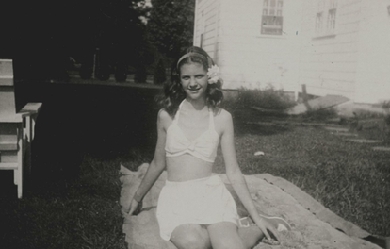
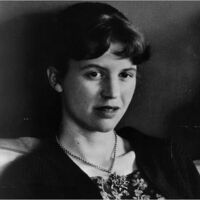
Sylvia Plath (October 27, 1932 – February 11, 1963) was an American poet, novelist and short story writer. Born in Boston, Massachusetts, she studied at Smith College and Newnham College, Cambridge before receiving acclaim as a professional poet and writer. She married fellow poet Ted Hughes in 1956 and they lived together first in the United States and then England, having two children together: Frieda and Nicholas. Following a long struggle with depression and a marital separation, Plath committed suicide in 1963. Controversy continues to surround the events of her life and death, as well as her writing and legacy. Plath is credited with advancing the genre of confessional poetry and is best known for her two published collections: The Colossus and Other Poems and Ariel. In 1982, she became the first poet to win a Pulitzer Prize posthumously, for The Collected Poems. She also wrote The Bell Jar, a semi-autobiographical novel published shortly before her death.
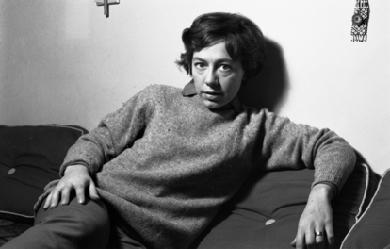

Flora Alejandra Pizarnik (Avellaneda, 29 de abril de 1936 – Buenos Aires, 25 de septiembre de 1972) fue una poetisa, ensayista y traductora argentina. Estudió filosofía y Letras en la Universidad de Buenos Aires y pintura con Juan Batlle Planas. Entre 1960 y 1964, Pizarnik vivió en París, donde trabajó para la revista Cuadernos y algunas editoriales francesas, publicó poemas y críticas en varios diarios y tradujo a Antonin Artaud, Henri Michaux, Aimé Césaire e Yves Bonnefoy. Además, estudió historia de la religión y literatura francesa en La Sorbona. Tras su retorno a Buenos Aires, Pizarnik publicó tres de sus principales volúmenes: Los trabajos y las noches, Extracción de la piedra de locura y El infierno musical, así como su trabajo en prosa La condesa sangrienta.
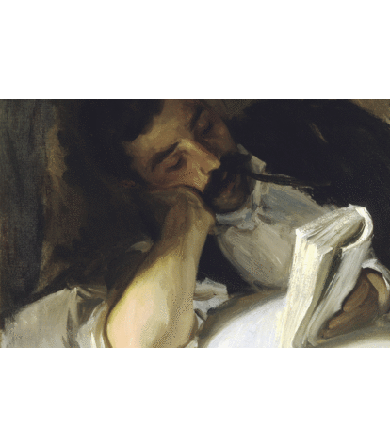
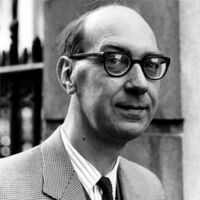
Philip Arthur Larkin (9 August 1922 – 2 December 1985) was an English poet and novelist. His first book of poetry, The North Ship, was published in 1945, followed by two novels, Jill (1946) and A Girl in Winter (1947), but he came to prominence in 1955 with the publication of his second collection of poems, The Less Deceived, followed by The Whitsun Weddings (1964) and High Windows (1974). He was the recipient of many honours, including the Queen's Gold Medal for Poetry. He was offered, but declined, the position of poet laureate in 1984, following the death of John Betjeman.
nacido en un rinconcito "el rincon de dolores " en Cd. Hidalgo Michoacan Mex. el 01 de febrero del año 1934, la mayor parte de su vida la ha vivido en Cd. Hidalgo Mich. donde actualmente vive con su esposa Bertha Olivarez Perez. Don Salvador es una persona honorable, de buen corazon, dedicado en todo lo que hace con un entusiasmo por la vida.
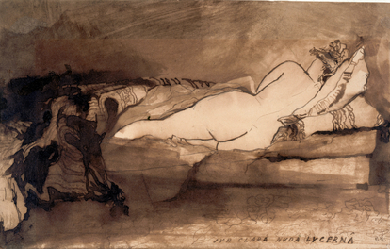
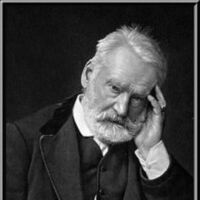
Victor Hugo est un poète, dramaturge, prosateur et dessinateur romantique français, né à Besançon le 26 février 1802 (le 7 ventôse an X selon le calendrier républicain encore en vigueur) et mort le 22 mai 1885 à Paris. Il est considéré comme l’un des plus importants écrivains de langue française. Il est aussi une personnalité politique et un intellectuel engagé qui a joué un rôle majeur dans l’histoire du xixe siècle. Il occupe une place marquante dans l’histoire des lettres françaises au xixe siècle, dans des genres et des domaines d’une remarquable variété. Au théâtre, Victor Hugo se manifeste comme un des chefs de file du Romantisme français lorsqu'il expose sa théorie du drame romantique dans les préfaces qui introduisent Cromwell en 1827, puis Hernani en 1830 qui sont de véritables manifestes, puis par ses autres œuvres dramatiques : Ruy Blas en 1838, mais aussi Lucrèce Borgia et Le Roi s'amuse.
Cantautor uruguayo de Tupambaé Cerro Largo, nació el 14 de setiembre de 1988 en Santa Clara de Olimar. Comenzó su interés por la música a los 16 años de edad; su abuelo le regalo una guitarra después de la continua insistencia de su padre, de querer que un hijo fuera músico de el nombrado instrumento. De pequeño, en la familia veía esa costumbre y gusto por la música y el canto; todos los géneros eran aceptados al correr de las distintas ocasiones del año. Después de haber participado en un certamen de la voz en su pueblo natal, le tomo el gusto y la dedicación al canto y la guitarra. El apoyo de personas que ya tenían el conocimiento, fue fundamental para el inicio de lo que perduraría en su vida. Al poco tiempo de afirmar sus paso, comenzó a escribir la idea de lo que podría ser una canción en letra y música. Con los años y tantas curiosidades obtuvo mejoras musicales y literarias. Así comiensan las presentaciones en sencillos evento y reuniones de amigos, donde podia sentir el agrado de la adrenalina y espontánea música autodidacta. Con el tiempo y la insistencias por comprender ese mágico mundo, lo lleva a transitar junto con su crecimiento por razones y oportunidades de la vida, en el trabajo y la formación de un ser. Formo varios grupos y duos del folclor de su país, funcionando con ritmos y fusiones de las fronteras y distintos sonidos latinoamericanos. Graba su primer álbum en el año 2014 el cual se titulo " Mi padre el alambrador " el cual llevaría el nombre de la canción principal y la que le diera mas satisfacciones. Se encuentra con su identidad y conformidad en el tercer trabajo titulado "Huella Arachana" desde ahí la comodidad y seguridad de la linea a seguir con sus mejoras fue clara. La composición de canciones y música le despertó el interés por la poesía literaria; después de conocer personas con gran gusto he interés por la misma. Sus fragmentos apuntan a las experiencias de la vida cotidiana, la historia y su vivencias. Nombrado en distintos premios y reconocimientos como cantautor dentro y fuera del país, llevo a tomar con mas dedicación y seriedad la composición musical y literaria. Luis Arrúa canta y escribe inspirado en la vida cotidiana y sus inquietudes, siempre tratando dejar un mensaje y hacer buena utilidad de la canción y poesía.

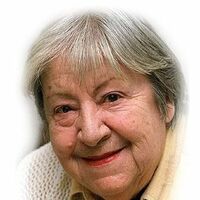
Gloria Fuertes (Madrid, 28 de julio de 1917 – Madrid, 27 de noviembre de 1998) fue una poetisa española. Nació en Lavapiés, en la época, un modesto barrio del Madrid antiguo. Su madre era costurera y sirvienta; su padre, bedel. Poco se sabe de su vida familiar, a lo que ha contribuido que la escritora siempre guardara celosamente su intimidad. Se ha especulado sobre su homosexualidad, que aparecería sutilmente declarada en poemas como «Lo que me enerva», «Me siento abierta a todo», «A Jenny», etc. Dice Gloria Fuertes: Sale caro, señores, ser poeta. La gente va y se acuesta tan tranquila que después del trabajo da buen sueño−. Trabajo como esclavo llego a casa, me siento ante la mesa sin cocina, me pongo a meditar lo que sucede. La duda me acribilla todo espanta; comienzo a ser comida por las sombras las horas se me pasan sin bostezo el dormir se me asusta se me huye −escribiendo me da la madrugada−. Y luego los amigos me organizan recitales, a los que acudo y leo como tonta, y la gente no sabe de esto nada. Que me dejo la linfa en lo que escribo, me caigo de la rama de la rima asalto las trincheras de la angustia que nombran su héroe los fantasmas, me cuesta respirar cuando termino. Sale caro señores ser poeta.
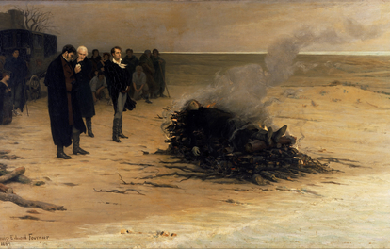
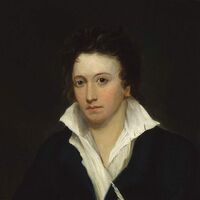
Percy Bysshe Shelley (4 August 1792 – 8 July 1822) was one of the major English Romantic poets and is critically regarded as among the finest lyric poets in the English language. Shelley was famous for his association with John Keats and Lord Byron. The novelist Mary Shelley (née Godwin) was his second wife. Shelley's unconventional life and uncompromising idealism, combined with his strong disapproving voice, made him a marginalized figure during his life, important in a fairly small circle of admirers, and opened him to criticism as well as praise afterward.
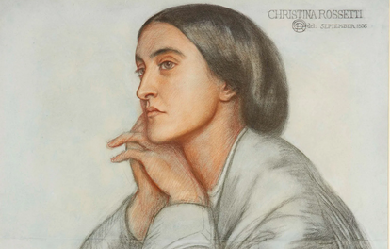
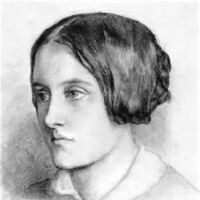
In 1830, Christina Rossetti was born in London, one of four children of Italian parents. Her father was the poet Gabriele Rossetti; her brother Dante Gabriel Rossetti also became a poet and a painter. Rossetti’s first poems were written in 1842 and printed in the private press of her grandfather. In 1850, under the pseudonym Ellen Alleyne, she contributed seven poems to the Pre-Raphaelite journal The Germ, which had been founded by her brother William Michael and his friends.


Love is the essence of pure thought. There is nowhere that this thought is not. I grew up in a small town in Oklahoma, just beyond the outskirts of several gypsum plateaus, miles of desert sand and vast horizons. I would go out into fields of sunflowers with my pen and paper, watching the currents of wind moving through miles and miles of wheat to write about the lucid imagery I would see when I closed my eyes, the experiences of coming out in a conservative community and finding my way as an artist in a place that did not nurture the arts. Words have always been my primary way to sort out my experiences into streams of consciousness that act as a form of self-discovery. Called by the overwhelming pull to follow my dreams, I relocated to the Catskills to follow my passions and put every idea into motion. I am currently working on several video projects, performances in several venues, live music, Sparkle Poetic radio ads, and many new things that you can keep up with on my website below. Welcome to the realm of words. Love is real. www.sparklepoetics.com

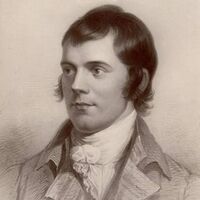
Robert Burns (25 January 1759 – 21 July 1796) (also known as Rabbie Burns, Scotland's favourite son, the Ploughman Poet, Robden of Solway Firth, the Bard of Ayrshire and in Scotland as simply The Bard) was a Scottish poet and a lyricist. He is widely regarded as the national poet of Scotland, and is celebrated worldwide. He is the best known of the poets who have written in the Scots language, although much of his writing is also in English and a “light” Scots dialect, accessible to an audience beyond Scotland. He also wrote in standard English, and in these his political or civil commentary is often at its most blunt.


I am very passionate about writing especially poetry because it speaks to my soul. I'm looking forward to become a professional writer someday and get published. I want to share my writing talent worldwide and I won't stop until I do. While I'm here at "Poeticous". I would like to receive honest feedback on my writings, but I can see people don't really comment, they only view. So what's the point of Poet's like myself sharing our poetry? if no one is willing to comment. Also, they may like the poem but refuse to press the "like" button..........I just don't understand that!!!
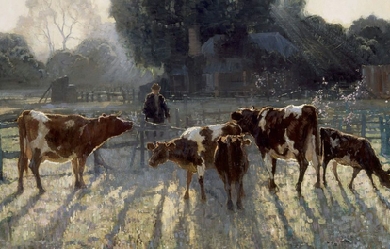
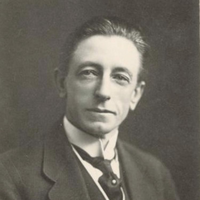
Clarence Michael James Stanislaus Dennis, better kn (own as C. J. Dennis, (7 September 1876– 22 June 1938) was an Australian poet known for his humorous poems, especially “The Songs of a Sentimental Bloke”, published in the early 20th century. Though Dennis’s work is less well known today, his 1916 publication of The Sentimental Bloke sold 65,000 copies in its first year, and by 1917 he was the most prosperous poet in Australian history. Together with Banjo Paterson and Henry Lawson, both of whom he collaborated with, he is often considered among Australia’s three most famous poets. When he died at the age of 61, the Prime Minister of Australia Joseph Lyons suggested he was destined to be remembered as the “Australian Robert Burns”. Biography C. J. Dennis was born in Auburn, South Australia. His father owned hotels in Auburn, and then later in Gladstone and Laura. His mother suffered ill health, so Clarrie (as he was known) was raised initially by his great-aunts, then went away to school, Christian Brothers College, Adelaide as a teenager. At the age of 19 he was employed as a solicitor’s clerk. It was while he was working in this job that, like banker’s clerk Banjo Paterson before him, his first poem was published under the pseudonym “The Best of the Six”. He later went on to publish in The Worker, under his own name, and as “Den”, and in The Bulletin. His collected poetry was published by Angus & Robertson. He joined the literary staff of The Critic in 1897, and after a spell doing odd jobs around Broken Hill, returned to The Critic, serving for a time c. 1904 as editor, to be succeeded by Conrad Eitel. He founded a short-lived literary paper The Gadfly. From 1922 he served as staff poet on the Melbourne Herald. C. J. Dennis is buried in Box Hill Cemetery, Melbourne. The Box Hill Historical Society has attached a commemorative plaque to the gravestone. Dennis is also commemorated with a plaque on Circular Quay in Sydney which forms part of the NSW Ministry for the Arts - Writers Walk series, and by a bust outside the town hall of the town of Laura. Books * Backblock Ballads and Other Verses (1913) * The Songs of a Sentimental Bloke (1915) * The Moods of Ginger Mick (1916) * The Glugs of Gosh (1917) * Doreen (1917) * Digger Smith (1918) * Backblock Ballads and Later Verses (1918) * Jim of the Hills (1919) * A Book for Kids (1921) (reissued as Roundabout, 1935) * Rose of Spadgers (1924) * The Singing Garden (1935) Shorter poems of note “The Austra-laise” (1908) Many shorter works were also published in a wide variety of Australian newspapers and magazines. References Wikipedia—https://en.wikipedia.org/wiki/C._J._Dennis
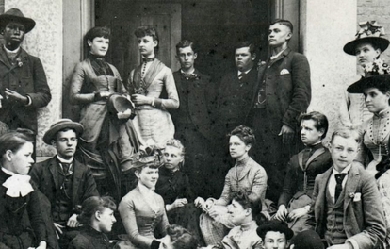
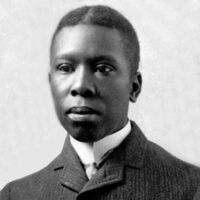
Paul Laurence Dunbar was the first African-American poet to garner national critical acclaim. Born in Dayton, Ohio, in 1872, Dunbar penned a large body of dialect poems, standard English poems, essays, novels and short stories before he died at the age of 33. His work often addressed the difficulties encountered by members of his race and the efforts of African-Americans to achieve equality in America. He was praised both by the prominent literary critics of his time and his literary contemporaries. Dunbar was born on June 27, 1872, to Matilda and Joshua Dunbar, both natives of Kentucky. His mother was a former slave and his father had escaped from slavery and served in the 55th Massachusetts Infantry Regiment and the 5th Massachusetts Colored Cavalry Regiment during the Civil War. Matilda and Joshua had two children before separating in 1874. Matilda also had two children from a previous marriage. The family was poor, and after Joshua left, Matilda supported her children by working in Dayton as a washerwoman. One of the families she worked for was the family of Orville and Wilbur Wright, with whom her son attended Dayton's Central High School. Though the Dunbar family had little material wealth, Matilda, always a great support to Dunbar as his literary stature grew, taught her children a love of songs and storytelling. Having heard poems read by the family she worked for when she was a slave, Matilda loved poetry and encouraged her children to read. Dunbar was inspired by his mother, and he began reciting and writing poetry as early as age 6. Dunbar was the only African-American in his class at Dayton Central High, and while he often had difficulty finding employment because of his race, he rose to great heights in school. He was a member of the debating society, editor of the school paper and president of the school's literary society. He also wrote for Dayton community newspapers. He worked as an elevator operator in Dayton's Callahan Building until he established himself locally and nationally as a writer. He published an African-American newsletter in Dayton, the Dayton Tattler, with help from the Wright brothers. His first public reading was on his birthday in 1892. A former teacher arranged for him to give the welcoming address to the Western Association of Writers when the organization met in Dayton. James Newton Matthews became a friend of Dunbar's and wrote to an Illinois paper praising Dunbar's work. The letter was reprinted in several papers across the country, and the accolade drew regional attention to Dunbar; James Whitcomb Riley, a poet whose works were written almost entirely in dialect, read Matthew's letter and acquainted himself with Dunbar's work. With literary figures beginning to take notice, Dunbar decided to publish a book of poems. Oak and Ivy, his first collection, was published in 1892. Though his book was received well locally, Dunbar still had to work as an elevator operator to help pay off his debt to his publisher. He sold his book for a dollar to people who rode the elevator. As more people came in contact with his work, however, his reputation spread. In 1893, he was invited to recite at the World's Fair, where he met Frederick Douglass, the renowned abolitionist who rose from slavery to political and literary prominence in America. Douglass called Dunbar "the most promising young colored man in America." Dunbar moved to Toledo, Ohio, in 1895, with help from attorney Charles A. Thatcher and psychiatrist Henry A. Tobey. Both were fans of Dunbar's work, and they arranged for him to recite his poems at local libraries and literary gatherings. Tobey and Thatcher also funded the publication of Dunbar's second book, Majors and Minors. It was Dunbar's second book that propelled him to national fame. William Dean Howells, a novelist and widely respected literary critic who edited Harper's Weekly, praised Dunbar's book in one of his weekly columns and launched Dunbar's name into the most respected literary circles across the country. A New York publishing firm, Dodd Mead and Co., combined Dunbar's first two books and published them as Lyrics of a Lowly Life. The book included an introduction written by Howells. In 1897, Dunbar traveled to England to recite his works on the London literary circuit. His national fame had spilled across the Atlantic. After returning from England, Dunbar married Alice Ruth Moore, a young writer, teacher and proponent of racial and gender equality who had a master's degree from Cornell University. Dunbar took a job at the Library of Congress in Washington, D.C. He found the work tiresome, however, and it is believed the library's dust contributed to his worsening case of tuberculosis. He worked there for only a year before quitting to write and recite full time. In 1902, Dunbar and his wife separated. Depression stemming from the end of his marriage and declining health drove him to a dependence on alcohol, which further damaged his health. He continued to write, however. He ultimately produced 12 books of poetry, four books of short stories, a play and five novels. His work appeared in Harper's Weekly, the Sunday Evening Post, the Denver Post, Current Literature and a number of other magazines and journals. He traveled to Colorado and visited his half-brother in Chicago before returning to his mother in Dayton in 1904. He died there on Feb. 9, 1906. Literary style Dunbar's work is known for its colorful language and a conversational tone, with a brilliant rhetorical structure. These traits were well matched to the tune-writing ability of Carrie Jacobs-Bond (1862–1946), with whom he collaborated. Use of dialect Much of Dunbar's work was authored in conventional English, while some was rendered in African-American dialect. Dunbar remained always suspicious that there was something demeaning about the marketability of dialect poems. One interviewer reported that Dunbar told him, "I am tired, so tired of dialect", though he is also quoted as saying, "my natural speech is dialect" and "my love is for the Negro pieces". Though he credited William Dean Howells with promoting his early success, Dunbar was dismayed by his demand that he focus on dialect poetry. Angered that editors refused to print his more traditional poems, he accused Howells of "[doing] my irrevocable harm in the dictum he laid down regarding my dialect verse." Dunbar, however, was continuing a literary tradition that used Negro dialect; his predecessors included Mark Twain, Joel Chandler Harris, and George Washington Cable. Two brief examples of Dunbar's work, the first in standard English and the second in dialect, demonstrate the diversity of the poet's production: (From "Dreams") What dreams we have and how they fly Like rosy clouds across the sky; Of wealth, of fame, of sure success, Of love that comes to cheer and bless; And how they wither, how they fade, The waning wealth, the jilting jade — The fame that for a moment gleams, Then flies forever, — dreams, ah — dreams! (From "A Warm Day In Winter") "Sunshine on de medders, Greenness on de way; Dat's de blessed reason I sing all de day." Look hyeah! What you axing'? What meks me so merry? 'Spect to see me sighin' W'en hit's wa'm in Febawary? List of works * Oak and Ivy (1892) * Majors and Minors (1896) * Lyrics of Lowly Life (1896) * Folks from Dixie (1898) * The Strength of Gideon (1900) * In Old Plantation Days (1903) * The Heart of Happy Hollow (1904) * Lyrics of Sunshine and Shadow (1905) References Paul Laurence Dunbar Website - www.dunbarsite.org/biopld.asp Wikipedia- http://en.wikipedia.org/wiki/Paul_Laurence_Dunbar

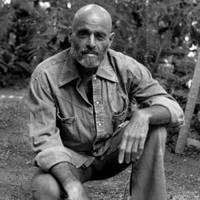
Sheldon Allan Shel Silverstein (September 25, 1930 – May 10, 1999), was an American poet, singer-songwriter, cartoonist, screenwriter, and author of children's books. He styled himself as Uncle Shelby in some works. Translated into more than 30 languages, his books have sold over 20 million copies.
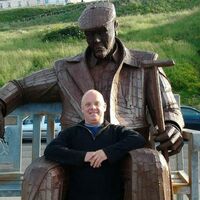
Welcome to my poetry page, I think its a blast, Some of my Poetry is about my past. Lots of wonderful words are written and funny, I don't get paid so it wont cost you money. My poems are of the wonders of life someone said I have written about the dead. Some people may be offended by some of my rhymes, So if your offended don't come back to read next time. But if my poetry makes you laugh please come back, Because this Yorkshire man has a sense of humour and can be really daft.


